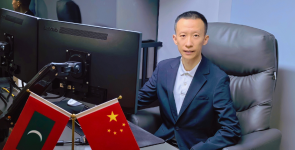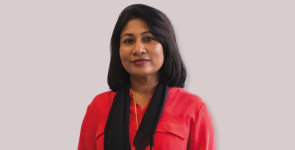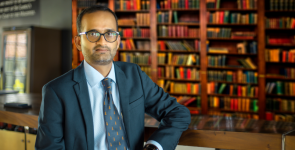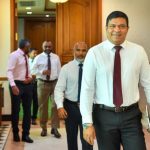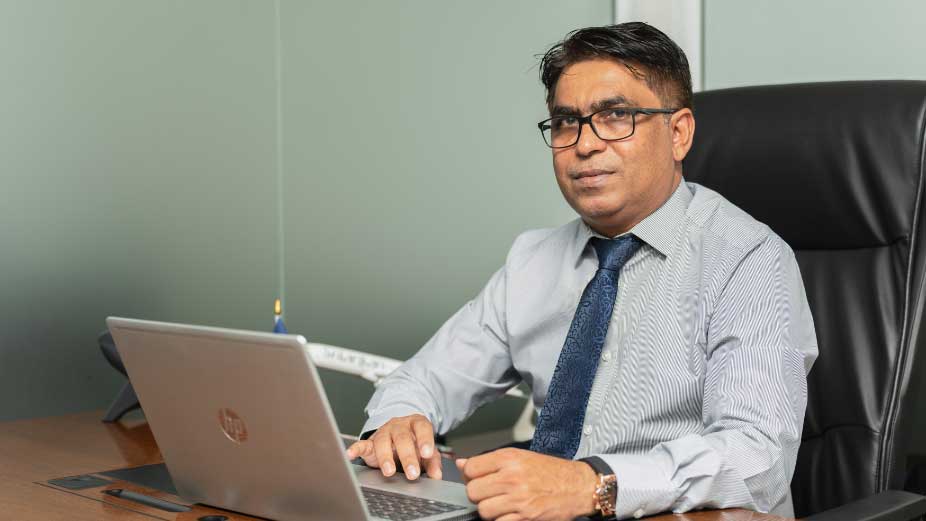
Corporate Maldives sat down with Mohamed Firaq, Founder and CEO of Inner Maldives Holidays, one of the leading travel operators in the Maldives. With over two decades of experience in the tourism industry, Firaq shared his insights on the company’s success, his vision for the future, and his efforts to develop Southern Maldives as a tourist hub. He has also been serving as the Honorary Consul of Seychelles in the Maldives for the past 10 years.
What inspired you to start Inner Maldives, and what challenges did you face during the initial stages of the company’s formation?
During my time at school in Majeedhiyaa, I noticed a lot of movement among the shops and many tourists in the area, including a well-known tourist company Ocean Sports Limited. I am still close friends with one of their establishment members. After school, I explored various career options, but opportunities were limited, particularly for younger individuals. I began my professional journey working in retail and later transitioned to a tourist shop, followed by a role as a tour guide. However, I soon realized that I had the potential to do more and achieve greater things. It was during my tenure at Sun Travels, Rover Tours and Crossworld Maldives that I decided to establish my own company, despite the fact that it was a small-scale operation. I believed in my potential and wanted to explore new opportunities, which led me to venture into the travel industry.
At the time, we didn’t have access to the technology we have today, and I faced numerous challenges, particularly in terms of communication and promotion of the destination. I would go to the airport and pick up clients using only a telephone and fax machine, which posed significant hurdles. However, technology has since improved and made our work much easier.
Aside from the technical challenges, we encountered many other difficulties, and there were times when I considered giving up and joining another company. However, I convinced myself to persevere and continue with my venture. It is a common experience among newcomers and even experienced individuals in the travel industry, particularly in a country like the Maldives. We require multinational partnerships with various destinations to survive and thrive, as the competition is high, and financial support from our banking system is limited, with high-interest rates and little support for local travel agencies. We must explore new possibilities and keep moving forward, rather than depending on a single source.
How do you ensure that your company stays ahead of the competition, and what strategies do you use to maintain a competitive edge in the travel industry?
Although we cannot say that we are much better than others, we understand that competition is a reality in the business world. At the core of our strength is our team. We are proud to have dedicated staff who have been working with us for many years, providing us with a wealth of knowledge and experience that sets us apart from others. This is how we are able to move better and more efficiently than our competitors.
We constantly research the market and take note of new trends and innovations. Our different departments analyze market positions, study what our competitors are doing, and determine what new things are coming in. We have been in the travel industry for a long time, and have experienced many ups and downs. We have learned from both good and bad experiences, especially during times like the pandemic or natural disasters such as the tsunami.
Through these experiences, we have learned how to control our costs and improve our operations. As an advisor, I always remind newcomers that the money they receive is not entirely theirs, as they are essentially operating as a postman to deliver services to hotels or other partners. This limited income requires us to be strategic and thoughtful in our approach. Our commitment to our partners also strengthens our competitive edge. We always strive to keep our partners’ interests at the forefront of our work, which helps us build and maintain strong relationships. Overall, our team, research, experience, and commitment to our partners are the key strategies that help us remain competitive in the industry.
What are the biggest trends shaping the travel industry today, and how is Inner Maldives adapting to these changes?
As we look to modernize, there are many things we could do with a particular emphasis on information technology. Unfortunately, the current system of the Maldives is not fully supportive, especially when it comes to the banking system and payment gateways. The lending charges and costs associated with such systems are very high, making it difficult for individuals in the industry to operate effectively. There are many inquiries and paperwork requirements, especially when it comes to booking high-end resorts like those found in the Maldives. The cost of such bookings can reach tens of thousands of dollars, and extra paperwork must be completed to prove legitimacy to resident authorities.
As a model, it is essential to have a modern, up-to-date system that supports the way we earn money. The majority of our income is dependent on payment gateways or banks, which means that daily inquiries from authorities can be time-consuming and frustrating. For instance, we have to fight for things like payment confirmations, which can delay or even disrupt our business operations. Therefore, there is a need for a better system that can keep up with our demands and understand the unique challenges we face in the industry. By investing in modern technology and improving the current system, we can ensure that the industry continues to thrive and grow.
What are your future goals for promoting tourism and improving connectivity in Addu, given Ace Travels’ flight services to Addu City via Sri Lankan Airlines and flydubai?
Despite our efforts over the past six years, we have not given up on bringing better connectivity to Southern Maldives. Currently, we have two flights with Sri Lanka, and flydubai initially announced a new flight service which was postponed but will continue in late October. With that, we need support from all stakeholders, particularly domestic airline operators, to ensure better connectivity and promote tourism in the region and the resorts in the south.
I am proud to say that I have had the most experience in trying to diversify tourism in Southern Maldives. We need to discuss the challenges openly and collaboratively to make progress in this regard.
To improve connectivity, we need support from industry associations and the government, as tourists will not come if there is no convenient way to travel. We must ensure that there is a smooth transfer process for travellers, as they do not want to wait for hours without connectivity. Furthermore, we are also planning to begin new connectivity to Maafaru Airport in the north, with paperwork almost complete, hopefully starting by the end of the year.
What are your plans for Inner Maldives Holidays, and where do you see the company in the next five years?
I believe that for a company to succeed, it needs to have a succession plan in place. As I have children who are growing up, I hope that they will take over the company in the near future. In the last 25 years, we have been able to build this brand without any major financial investment from resorts, properties, or investors, and we are proud of that. In the next five years, we aim to expand our offerings and services to cater to the growing demand for travel in the Maldives. We plan to invest in technology and innovative solutions that can help us improve customer experience and satisfaction. We also hope to build stronger partnerships with local businesses and stakeholders to support sustainable tourism in the region





